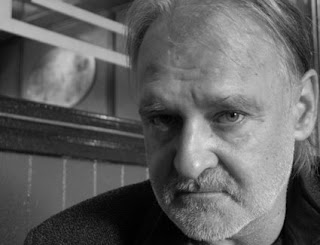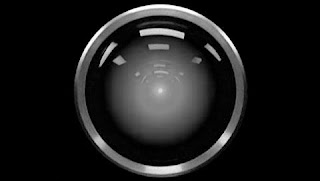
This past Monday, I reluctantly went to the Malaysian Shorts showcase, the regular event organised by Kelab Seni Filem Malaysia. Reluctantly, for various reasons that I shan't disclose here.
It's nothing to do with the showcase itself. No, I dig Malaysian Shorts. I've attended almost every single one in the past.
This time around, there was unfortunately, quite a morose factor still evident in some of the films. Long scenes of people smoking, people eating, and even a kid taking a shit - thrice! (Blame Flower In The Pocket for starting this trend)
I disagree with Hassan Muthalib (who took over MC duties from Amir Muhammad who shirked his responsibilities for some other unknown engagement [I'm thinking it must be those documentaries taking up his time]), who said the short films this time around show a higher production quality.
Save for maybe one of the films, they were all made by professionals or those with experience. The previous instalments of the showcase featured everything from student films to amateur attempts.
Here's what I thought of the films:
For The Love Of Drowning (I hope this is the title, because it wasn't included in the official list, something like a last minute inclusion, which is also why I forgot the director's name)
Metaphorical storytelling that I didn't get, or didn't bother to get. I shouldn't say that this kind of thing is easy to do, but it is! But this BMW Shorties winner has nice shots.
916 (David Ngui)
Despite its earnestness, this one just falls short. Nice production value, but the acting is a tad wanting while the story isn't as challenging as it should be in regards to its subject matter - communists in Sabah and Sarawak.
G16 G17 (Saw Tiong Guan)
Young man wants his mother to relive her romance with his late father at the old cinema. There's a sincerity to this story that gives it the right boost to defeat its own worst enemy - its ending. Someone in the audience said during the post-show Q&A that the ending is "cheesy." I wouldn't call it "cheesy," but it's definitely a rather safe turn into familiar territory. I wished the director Saw Tiong Guan (apparently no relation to Saw Tiong Hin, director of PGL) had explained his choice of ending instead of brushing off the remark by only saying it was his choice.
Adults Only (Yeo Joon Han)
Despite its unfortunate TV-commercial sheen, this Venice Special Mention winner manages to make a lifetime's worth of points in just 10 minutes. Very smart ending that nicely delivers an eye-opening coda. Surprisingly poignant. And you just have to love the use of Big Brother & The Holding Company and Janis Joplin's Summertime.
Eye+Finger (Margaret Bong)
Nice idea about a deaf-mute couple trying to come to terms with the death of their child and with each other. But the emotional quotient is sadly missing. There's a feeling that this should have been a longer piece.
Escape (Charlotte Lim)
An eye-catching opening scene, but I zoned out midway because it doesn't seem to be any different than the other Chinese independent dramas that we've seen. The lack of a distinctive, individual touch bothered me. The closing scene of the grandfather and the grandson walking through the rubber estate is very nice, humorous and touching, though a bit too late.
The Need Of Rites (shouldn't it be "The Need FOR Rites"? but then again ...) (Tan Chui Mui)
Not the best here, but it definitely is so damn engaging. While the scenario of a girl being hounded by a persistent street fortune-teller has endless possibilities, the execution somehow lacks a bit of suspense. Still, the dialogue is fun and ear-catching, no less. It's something we've come to expect from Tan Chui Mui, isn't it? A simple set-up but a whole array of dynamics.
Eaten By Time (Anonymous)
Experimental short that seems to have been made on a whim. At least its running time and sudden end give one that impression. Don't ask me what it's about, though.
 There's a nice article at Silicon Alley Insider linking to a Content Agenda write-up about Blu-ray that tells it like it is. The first paragraph sets it up:
There's a nice article at Silicon Alley Insider linking to a Content Agenda write-up about Blu-ray that tells it like it is. The first paragraph sets it up:























